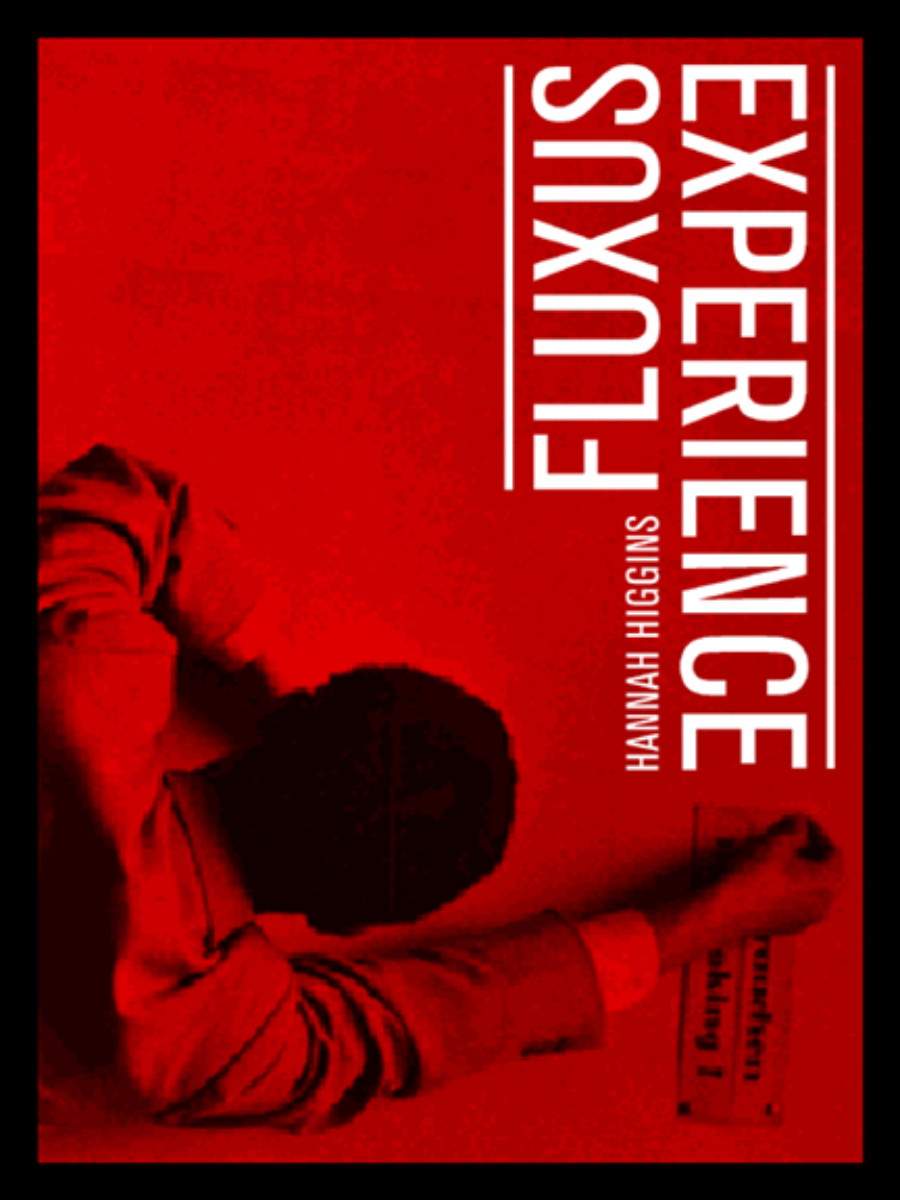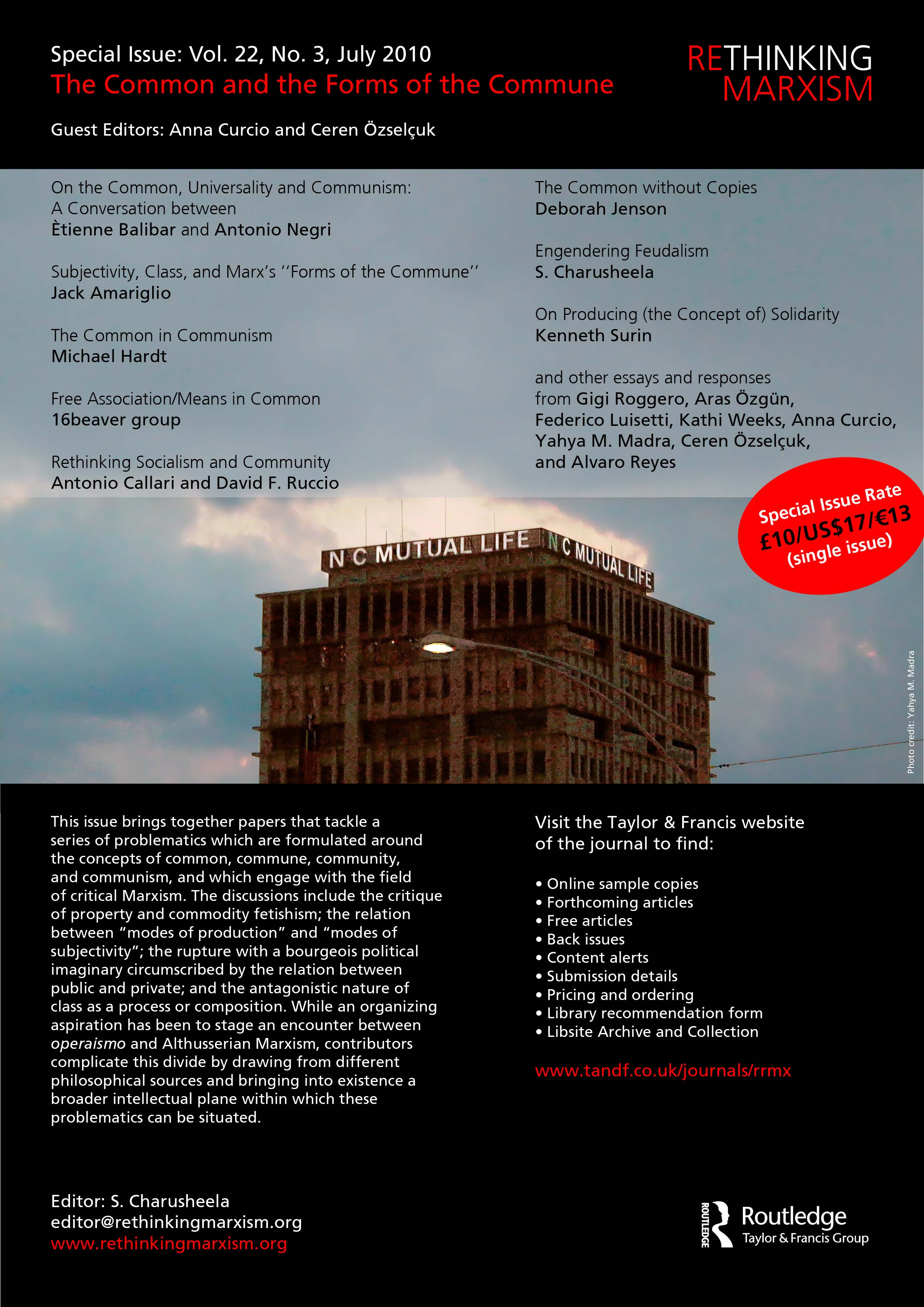Edu-Factory Journal, No. 0-1 (2010-2011)
Filed under journal | Tags: · capitalism, commons, economy, education, financial crisis, neoliberalism
Edu-factory is a transnational collective engaged in the transformations of the global university and conflicts in knowledge production. The website of the global network (www.edu-factory.org) collects and connects theoretical investigations and reports from university struggles. The network has organized meetings all around the world, paying particular attention to the intertwining of student and faculty struggles.
Issue 1: University Struggles and the System of Measure
September 2011
Editors: Nirmal Puwar, Gerald Raunig and Brett Neilson
81 pages
Contributions by Edu-factory collective, Enda Brophy and Myka Tucker-Abramson, Lina Dokuzović and Eduard Freudmann, Victor Jeleniewski Seidler, Mary Evans, Bridget Fowler, Peer Illner
Issue 0: The Double Crisis
January 2010
141 pages
Contributions by Edu-factory collective, Christopher Newfield, George Caffentzis, Jon Solomon, Stefano Harney, Ned Rossiter, Marc Bousquet, Revista Multitud, Pedro Barbosa Mendes, Claudia Bernardi and Andrea Ghelfi, Lina Dokuzović and Eduard Freudmann, Uninomade
ISSN 2078-3884
no copyright
Hannah Higgins: Fluxus Experience (2002)
Filed under book | Tags: · art, art criticism, art history, education, experimental film, fluxus, happening, intermedia, intermedia art, neo-dada, performance, performance art, pop art

“In this work, Hannah Higgins explores the influential art movement Fluxus. Daring, disparate, contentious—Fluxus artists worked with minimal and prosaic materials now familiar in post-World War II art. Higgins describes the experience of Fluxus for viewers, even experiences resembling sensory assaults, as affirming transactions between self and world.
Fluxus began in the 1950s with artists from around the world who favored no single style or medium but displayed an inclination to experiment. Two formats are unique to Fluxus: a type of performance art called the Event, and the Fluxkit multiple, a collection of everyday objects or inexpensive printed cards collected in a box that viewers explore privately. Higgins examines these two setups to bring to life the Fluxus experience, how it works, and how and why it’s important. She does so by moving out from the art itself in what she describes as a series of concentric circles: to the artists who create Fluxus, to the creative movements related to Fluxus (and critics’ and curators’ perceptions and reception of them), to the lessons of Fluxus art for pedagogy in general.
Although it was commonly associated with political and cultural activism in the 1960s, Fluxus struggled against being pigeonholed in these too-prescriptive and narrow terms. Higgins, the daughter of the Fluxus artists Alison Knowles and Dick Higgins, makes the most of her personal connection to the movement by sharing her firsthand experience, bringing an astounding immediacy to her writing and a palpable commitment to shedding light on what Fluxus is and why it matters.”
Publisher University of California Press, 2002
ISBN 0520228677, 9780520228672
259 pages
Reviews: Ken Friedman (Design Research, 2003), Jennie Klein (PAJ: A Journal of Performance and Art, 2004), Roy R. Behrens (Leonardo, 2004), Branislav Jakovljevic (TDR: The Drama Review, 2004), Ágnes Ivacs (Artpool, n.d.).
PDF (updated on 2012-7-18)
Comment (0)Rethinking Marxism: Special Issue on the Common and the Forms of the Commune (2010)
Filed under journal | Tags: · biopolitics, commons, communism, community, education, marxism, political economy, politics

This issue brings together papers that tackle a series of problematics which are formulated around the concepts of common, commune, community, and communism, and which engage with the field of critical Marxism. The discussions include the critique of property and commodity fetishism; the relation between ‘modes of production’ and ‘modes of subjectivity’; the rupture with a bourgeois political imaginary circumscribed by the relation between public and private; and the antagonistic nature of class as a process or composition. While an organizing aspiration has been to stage an encounter between operaismo and Althusserian Marxism, contributors complicate this divide by drawing from different philosophical sources and bringing into existence a broader intellectual plane within which these problematics can be situated.
Rethinking Marxism, Volume 22, Issue 3, 2010
Editor: S. Charusheela
Guest editors: Anna Curcio and Ceren Özselçuk
more (flyer)
Comment (0)
